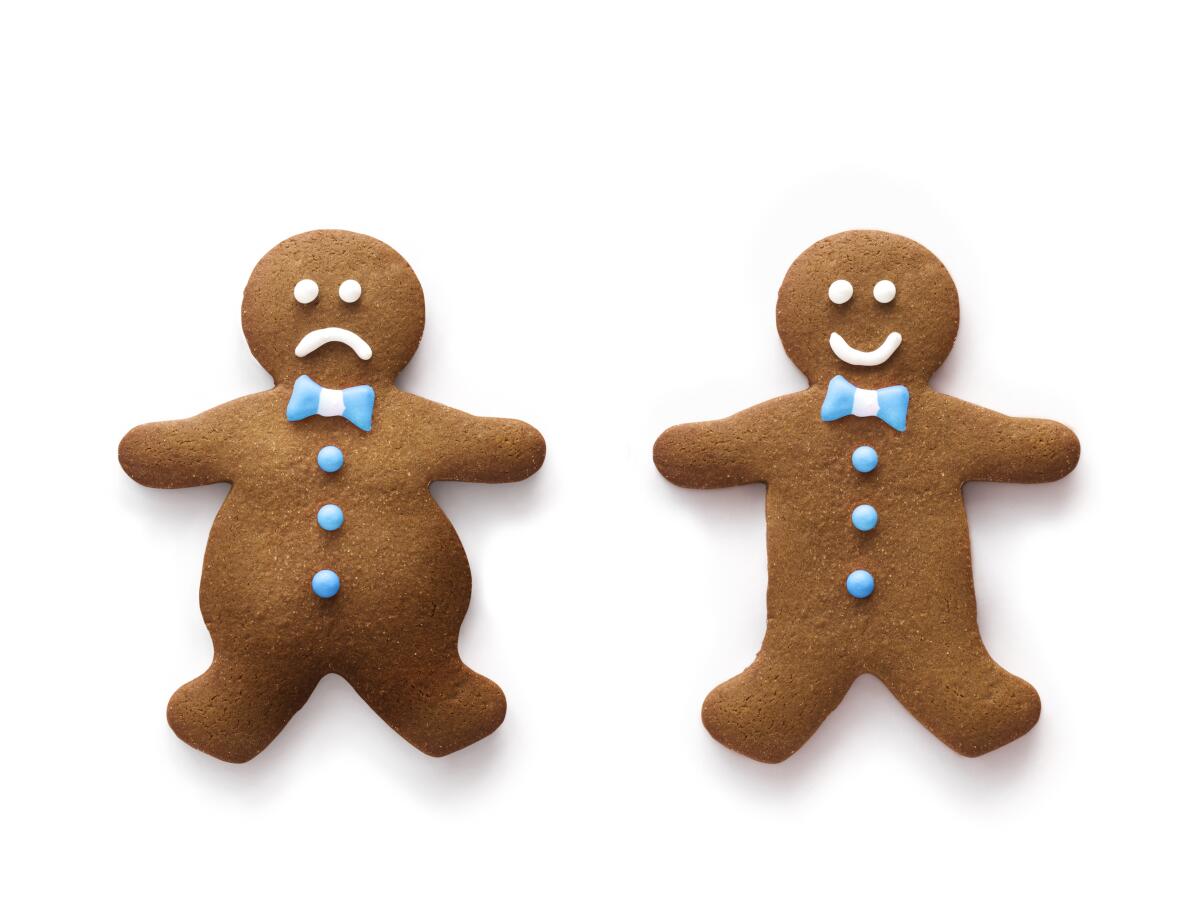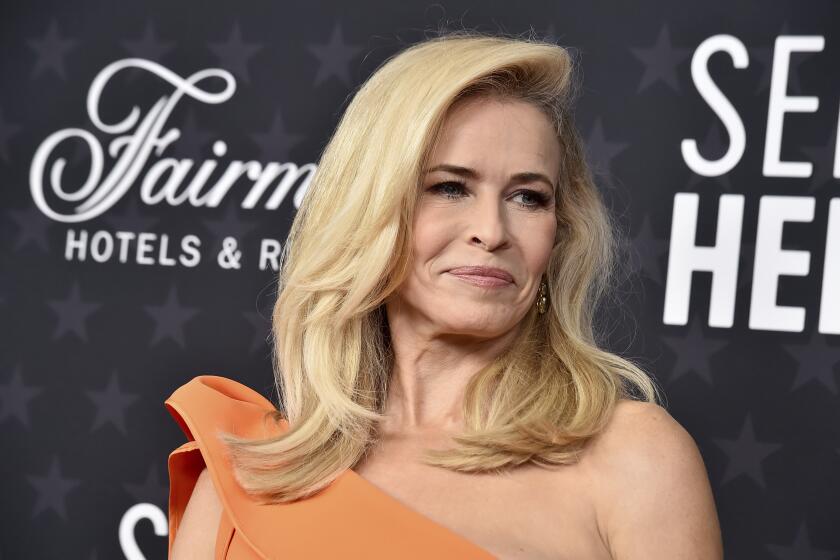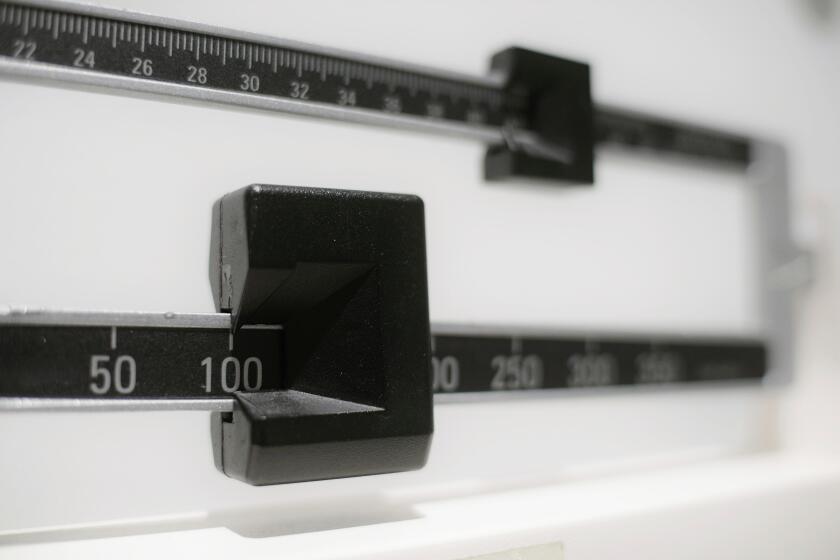Column: It’s a weird cultural moment. Taking Ozempic to lose weight is all the rage, but so is the fight for fat acceptance

- Share via
On Tuesday morning, I sat down at my desk to fill out a couple of online questionnaires that would determine whether I harbor negative feelings about fat people and obesity in general.
Would these tests reflect my belief that fat people are subjected to many forms of irrational discrimination? That they are routinely mistreated, disrespected and misdiagnosed by medical professionals? Humiliated on airplanes and in other public places? Regularly subjected to casual cruelty and unbidden advice?
Or would they catch me out, and reveal that I am one of those people who fervently does not want to be fat, who is always hoping to lose a few pounds? That I am endlessly intrigued by stories about “magic” weight loss drugs such as Ozempic and its rebranded version, Wegovy, first developed to help lower the blood sugar of people with diabetes and then discovered, as a side effect, to cause weight loss? The drug has become so widespread in Hollywood that Jimmy Kimmel even joked about it during his Oscars monologue in March: “Everybody looks so great. When I look around this room, I can’t help but wonder, ‘Is Ozempic right for me?’ ”
We live in a contradictory culture that increasingly tells us to value and appreciate people of all sizes, while valorizing thinness in innumerable, harmful ways. And so, like many women, I have a dysfunctional relationship with my weight. I’ve gained and lost the same 20 pounds countless times. I’m happy when I’m thin, and I’m sad — even slightly depressed on some level — when I’m not. I remain appalled that I pin my self-worth on my appearance.
A pharma giant rebrands its diabetes drug for weight loss. But health plans’ coverage of Wegovy, at more than $1,300 a month, is not a sure thing.
So, about those questionnaires:
I first sampled Project Implicit, a nonprofit collaborative of researchers whose mission is to educate the public about bias “and to provide a ‘virtual laboratory’ for collecting data online.” It measured my reaction time as I assigned good and bad qualities to fat and thin people. The conclusion: I exhibited a “moderate preference for thin people.”
The Fat Phobia Scale asked 14 questions to determine my beliefs and feelings about people who are, as the scale puts it, “fat or obese.” Turns out, according to the scale, I am “fat positive.” It praised me as “an ‘all bodies are good bodies’ warrior.”
The Project Implicit questionnaire conclusion was probably more accurate. I want to be a warrior in the fat liberation movement, but I struggle to be. I silently judge the size of others all the time, a quality I find really distasteful in myself.
Comedian Chelsea Handler says she will lay off the Ozempic after she unknowingly tried the diabetes drug-turned-new Hollywood obsession herself.
I came across both of these questionnaires as I was reading podcaster and cultural activist Aubrey Gordon’s new book,“ ‘You Just Need to Lose Weight’ and 19 Other Myths About Fat People.” Gordon used to write for Self magazine under the pseudonym “Your Fat Friend” until, as she confessed in 2020, “the simple shield of anonymity grew heavy, became too much to bear.”
Since October 2020, Gordon has co-hosted the popular podcast “Maintenance Phase” with the journalist Michael Hobbes. They take on what they call the “wellness industrial complex” and the many ways in which the conventional wisdom about health and weight spring more from wishful thinking and bias than reality.
My daughter, Chloe, introduced me to the podcast, recommending the episode on the dubious origins of BMI, or body mass index, and the way it has been misapplied to individuals over the years. As Gordon explains in her book, BMI, which measures the ratio of weight to height, was developed 200 years ago based on data gathered from French and Scottish men.
The calories in, calories out way of thinking about gaining weight isn’t working. Instead of counting calories, watch your intake of refined sugar and grains.
“It was,” she writes, “never intended as a measure of individual body fat, build or health. To its inventor, the BMI was a way of measuring populations, not individuals, designed for the purposes of statistics, not individual health.”
Yet, here we are in a world where BMI has become a proxy for health, a determiner of medical treatments. It has also, writes Gordon, paved the way for “a new public health panic: the ‘Obesity Epidemic.’ ”
Being fat, she and many others have noted, does not automatically mean one is unhealthy. Sure, there are medical problems associated with obesity. But you don’t have to be overweight to experience high blood pressure, stroke, high cholesterol or joint pain. Medical professionals, she says, are often surprised by her normal blood pressure readings because she weighs 350 pounds.
In fact, she writes, researchers have come up with the phrase “the obesity paradox” to describe the conflict between “research findings and popular expectations about fat people’s health.”
Millions of Americans in recent years have received the disturbing news from their doctors that they have a potentially dangerous condition called “prediabetes.”
She highlights a review of numerous studies published in the medical journal Diabetes Care that its authors say proves the existence of the paradox. Among the studies cited in the review is one from 2011 that concludes, “Overweight and obese patients have significantly better survival rates after stroke than their normal-weight counterparts.” (Other experts using other studies, it must be said, have discounted the existence of the paradox altogether.)
Anyway, despite advances in research, there are more questions than answers about obesity, and the relationship between weight and health.
“We simply do not know why some people are fat and others are thin,” writes Gordon. “And the closer we get to an answer, the more complex the picture becomes.”
What we do know is this: Being fat is not a moral failing. There is no contradiction in being fat, happy and healthy.
More to Read
A cure for the common opinion
Get thought-provoking perspectives with our weekly newsletter.
You may occasionally receive promotional content from the Los Angeles Times.















